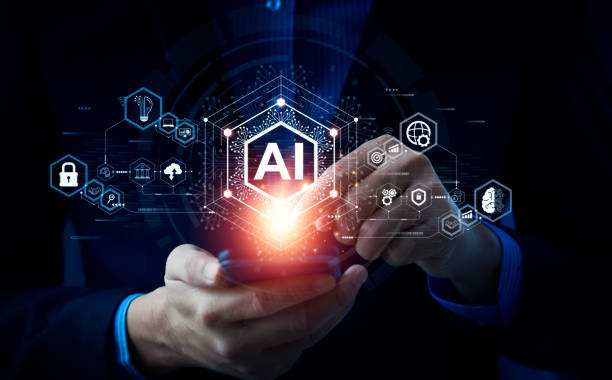
- April 12 2025
- SFI Solution Team
How AI and ML Are Transforming API Development and Management
In the contemporary digital landscape, Application Programming Interfaces (APIs) serve as the fundamental framework for modern software development. They enable seamless interaction among various systems, promote integration, and foster swift innovation. As organizations expand and the need for more efficient and advanced applications increases, Artificial Intelligence (AI) and Machine Learning (ML) are becoming pivotal in transforming the processes of API development, deployment, and management.
This detailed blog post examines the ways in which AI and ML technologies are transforming API development and management, improving performance, simplifying complexity, and providing more sophisticated solutions.
The API Economy and Its Evolution
The API economy refers to the proliferation and strategic use of APIs to unlock business value. APIs empower developers to access services and data, enabling faster time-to-market and seamless user experiences. However, traditional API development and lifecycle management can be time-consuming, error-prone, and resource-intensive.
With the increasing complexity of applications and user demands, the industry needs smarter solutions—and that’s where AI and ML come into play.
Role of AI and ML in Software Development
Artificial Intelligence involves creating systems capable of tasks that usually require human intelligence, while Machine Learning focuses on data-driven algorithms that learn and adapt. In software development, these technologies are automating workflows, improving code quality, and providing predictive insights.
Now, they’re doing the same for APIs—enhancing how they’re created, managed, and scaled.
Key Ways AI and ML Are Transforming API Development
1. Automated API Design and Documentation
One of the most time-consuming aspects of API development is designing consistent, well-structured APIs and creating accurate documentation.
AI-powered tools can :
-
Automatically generate OpenAPI specifications
-
Suggest standardized naming conventions and structures
-
Convert legacy systems into APIs through smart parsing of code and data models
-
Use Natural Language Processing (NLP) to create human-readable documentation
This reduces development time and ensures consistency across teams and services.
2. Predictive Analytics for API Usage
ML algorithms can analyze historical data to predict how and when APIs will be used. This enables:
-
Intelligent capacity planning
-
Identification of underused or overused APIs
-
Performance tuning based on usage trends
By leveraging predictive analytics, organizations can better allocate resources and optimize API performance for future demands.
3. Intelligent Testing and Monitoring
AI-driven testing tools now offer:
-
Automated generation of test cases based on API schema and usage patterns
-
Smart detection of bugs and inconsistencies
-
Continuous monitoring with real-time anomaly detection
These capabilities not only reduce manual testing time but also improve the quality and reliability of APIs in production environments.
4. Security Enhancement and Anomaly Detection
API security is a top concern. AI and ML technologies can:
-
Detect unusual behavior patterns indicating potential security threats (e.g., DDoS, token misuse)
-
Flag unauthorized access or data leakage risks
-
Continuously learn from traffic patterns to adapt security rules dynamically
By integrating AI-based security analytics, companies can strengthen their API protection without relying solely on static rules.
AI-Driven API Management : Smarter Governance and Optimization
Modern API management platforms are integrating AI to provide deeper insights and automation capabilities, such as :
-
Auto-scaling infrastructure based on predicted traffic
-
Smart versioning recommendations based on usage trends
-
Policy enforcement automation for governance and compliance
-
Personalized developer experiences using AI-driven recommendation engines
These advancements improve operational efficiency, reduce costs, and enhance developer productivity.
Real-World Use Cases and Examples
-
Google Apigee uses ML for anomaly detection and predictive analytics in API traffic
-
Postman integrates AI to suggest improvements in API structure and documentation
-
MuleSoft Anypoint Platform uses AI to recommend relevant APIs and improve reuse
-
Amazon API Gateway offers smart throttling based on usage patterns detected by ML models
These examples show how major platforms are embedding intelligence directly into the API lifecycle.
Challenges and Considerations
While the benefits are substantial, integrating AI/ML into API development comes with its own set of challenges :
-
Data privacy concerns : ML models require access to API traffic data, which must be anonymized and secured
-
Skill gap : Developers need to understand AI principles to effectively use intelligent tools
-
Model accuracy : Poorly trained ML models can produce misleading insights or false positives
-
Integration complexity : Embedding AI into existing workflows requires careful planning and change management
Organizations should approach implementation with a clear strategy and adequate training.
Future Trends in AI and ML for APIs
Looking ahead, we can expect :
-
Conversational API design using AI-powered chat interfaces
-
Self-healing APIs that can detect and resolve issues autonomously
-
AI DevOps integration for real-time orchestration and deployment
-
Explainable AI (XAI) in API analytics to offer transparent decision-making insights
These innovations will push the boundaries of what’s possible in software engineering.
Conclusion
AI and ML are transforming the way APIs are developed and managed-making them faster, more secure, and more intelligent. From automated documentation and smart monitoring to predictive analytics and adaptive security, these technologies are reshaping the entire API lifecycle.
As businesses continue to embrace digital transformation, those who invest in AI-enhanced API strategies will gain a competitive edge-driving innovation, scalability, and smarter user experiences.
Ready to revolutionize your API strategy with AI and ML? Start by evaluating your current API workflows and identifying areas where automation and intelligence can add value. The future of APIs is here—and it’s powered by data.
Previous Post